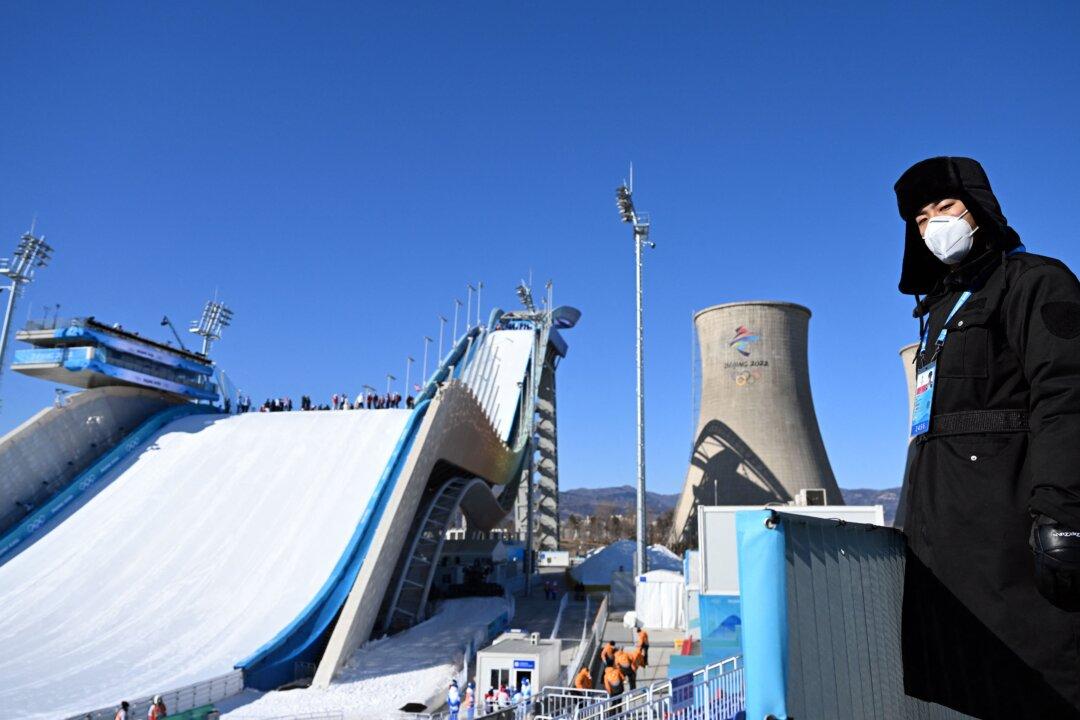The much-anticipated Winter Olympics in Beijing got off to an awkward start as a member of the local security forces wearing a red armband accosted and pushed a Dutch reporter who was attempting to report on the event.
The incident is the latest example of the communist regime’s intolerance of a free press. To some, it represents a microcosm of the official repression and abusive practices employed that have helped make the Winter Olympics controversial and drive some organizations to boycott the event.
Den Daas tries to ignore the guard and carry on with his reportage, his gaze alternating between the camera and the increasingly menacing guard, until the camera cuts away.
NOS’s tweet of the clip states that den Daas was able to resume his on-air report a few minutes after the guard accosted him. But the incident quickly drew international attention as a spate of Western publications rushed to report it.
The Winter Olympics has already been a source of heated international controversy going back many months. The United States and a host of Western allies last year announced diplomatic boycotts of the Games in protest against the Chinese regime’s atrocities against Uyghur Muslims in Xinjiang and other abuses elsewhere.
Some experts also questioned the effectiveness of a boycott that did not involve an extremely broad coalition of nations such as those that participated in the boycott of the Olympic Games held in Moscow in 1980, the year following the Soviet Union’s invasion of Afghanistan.
Besides its human rights abuses, Beijing has also drawn intense scrutiny over its treatment of tennis star Peng Shuai, who disappeared from public view for a few weeks in November after alleging in a social media post that she was sexually assaulted by a former senior Chinese official. Despite her subsequent reermergence, concerns remain over her ongoing safety and wellbeing.





